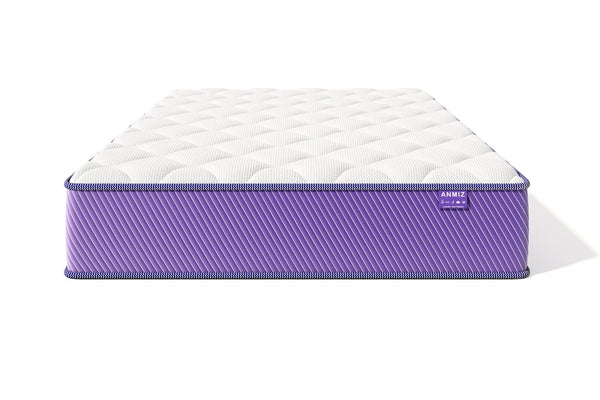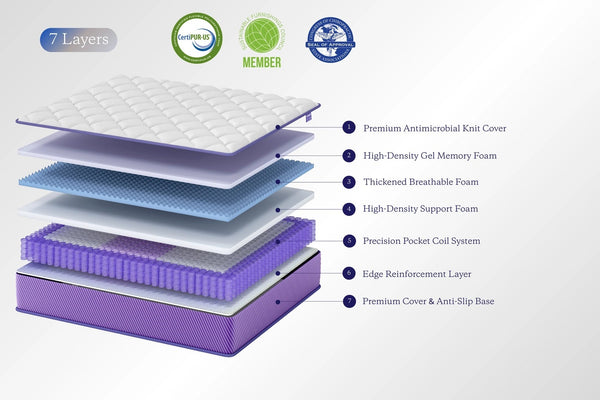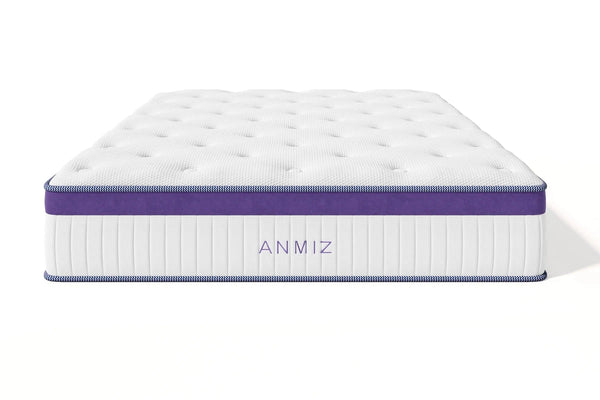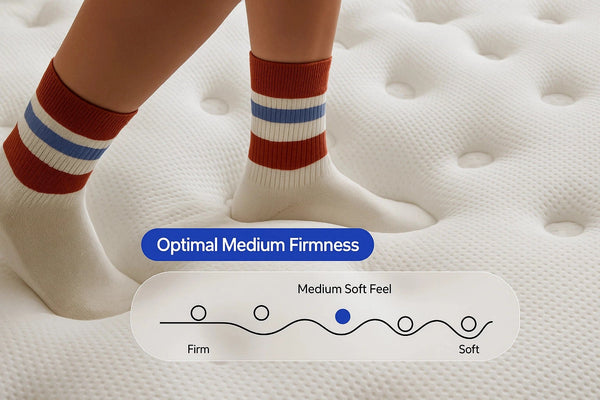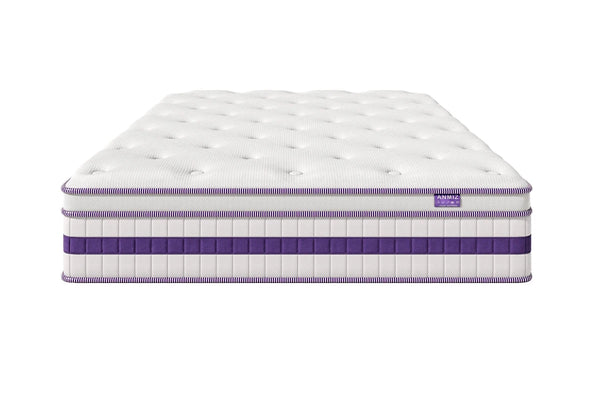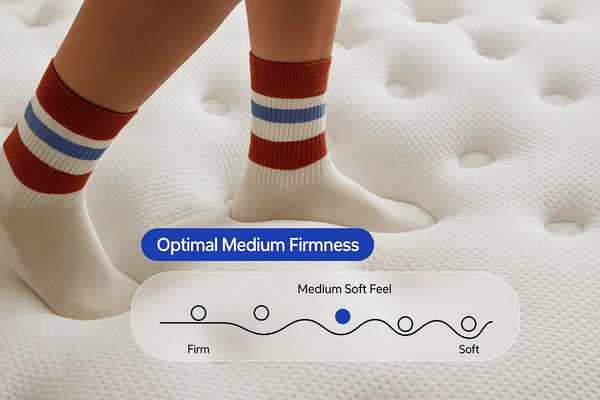Best Mattress for Back Problems: Expert Picks for Pain Relief
If you're tired of waking up sore and stiff, you’re not alone. Millions struggle with back problems, but here’s some good news: finding the best mattress for back problems could be your game-changer. Let’s dig deep into how the right mattress can support your spine, relieve your pain, and give you the kind of sleep that makes you want to leap out of bed in the morning—no groaning required.
Why Choosing the Right Mattress Matters More Than You Think
How Sleep Directly Impacts Your Back Health
Sleep isn’t just a time-out for your brain—it's prime time for your body to heal. But if you’re sleeping on a mattress that doesn’t support your back, you’re doing more harm than good. An unsupportive mattress can push your spine out of alignment, creating extra strain on muscles and joints. Over time, this can turn a small ache into a daily struggle.
Research shows that poor sleep exacerbates inflammation, stress, and discomfort, especially for people with chronic back pain. The best mattress for back problems maintains your spine's natural curve and keeps pressure off sensitive spots like your lower back.
Spinal Alignment: The Unsung Hero of Pain Relief
Think of your spine as the highway of your body—it needs to stay straight and clear for smooth operation. A supportive mattress helps maintain this natural alignment by cradling your body’s curves just enough to prevent sagging or misalignment. Experts recommend medium-firm mattresses for the perfect balance of support and comfort, preventing pressure points without feeling like you’re sleeping on a plank.
Ever wonder why some nights you toss and turn more than others? Poor spinal support could be the culprit.
Types of Mattresses for Back Pain: Which One Is Right for You?
Memory Foam Mattresses: Contouring Comfort
Memory foam is a crowd favorite—and for good reason. It molds to your body’s unique shape, offering personalized support where you need it most. Pressure points like the lower back, hips, and shoulders get the relief they crave. Plus, high-density memory foam adjusts to your body temperature, ensuring a snug but breathable sleeping environment.
Imagine sleeping in a gentle hug that shifts perfectly with your every move. That’s the magic of memory foam.
Innerspring and Hybrid Options: Firmness Meets Flexibility
If you like a bit of bounce and robust support, innerspring mattresses might be your jam. They use coils to provide a sturdy base that’s less likely to sag over time. But if you want the best of both worlds—support and softness—consider a hybrid mattress. Hybrids combine the pressure relief of foam with the strong support of coils, making them a top contender for people with back problems.
Think of hybrids as the Swiss Army knife of mattresses—versatile and reliable for all kinds of sleepers.
Factors to Consider When Shopping for the Best Mattress for Back Problems
Match Your Mattress to Your Sleep Position
Picking a mattress without considering your sleep position? Big mistake. Here’s a quick cheat sheet:
- Side Sleepers: Go for softer to medium-firm mattresses to cushion the hips and shoulders.
- Back Sleepers: Medium-firm is your best bet for supporting your lower back without overextending your spine.
- Stomach Sleepers: Choose a firmer mattress to keep your hips from sinking too deep and straining your back.
Choosing wrong can mean waking up feeling like you slept in a pretzel shape—and not the fun kind.
Budget and Durability: Spending Smart
You don’t have to blow your budget to find relief. Many mid-priced mattresses offer advanced features like zoned support and cooling technologies. Durability is key, too—a mattress should last at least 7 to 10 years. Otherwise, you’ll find yourself back in the market (and back in pain) sooner than you think.
Top Expert Recommendations for Back Pain Sufferers
Nectar: Best Overall Mattress for Back Pain
The Nectar mattress combines multiple layers of memory foam for an ideal mix of comfort and firm support. Its adaptive foam conforms to your body while maintaining a medium-firm feel—perfect for spinal alignment. Plus, it comes with a generous 365-night trial period. A full year to decide? Yes, please.
Saatva: Best Innerspring Mattress for Back Pain
Love a traditional mattress feel? The Saatva Classic has you covered. It uses a dual coil-on-coil system to provide outstanding lumbar support. Plus, it’s available in multiple firmness levels, allowing you to pick the version that best matches your personal comfort preferences and sleeping style.
| Mattress | Best For | Key Feature | Trial Period |
|---|---|---|---|
| Nectar | Memory Foam Lovers | Pressure-relieving contour support | 365 Nights |
| Saatva | Fans of Innerspring Support | Dual-coil lumbar reinforcement | 180 Nights |
How a Quality Mattress Transforms Your Sleep
Less Tossing, More Snoozing
A supportive mattress minimizes tossing and turning by keeping your spine properly aligned. This leads to deeper sleep cycles where your body can really heal. And let's be real—less tossing means less poking your partner awake, too.
Wake Up Ready to Conquer Your Day
Ever wake up feeling like you wrestled a bear all night? With the right mattress, you’ll actually feel refreshed. Proper spinal support ensures your muscles relax and recover, boosting your energy and improving your mood for the day ahead.
Wouldn’t it be nice to wake up excited instead of exhausted?
Conclusion: Your Health Is Worth the Investment
Finding the best mattress for back problems isn’t just about getting better sleep—it’s about improving your quality of life. By focusing on features like medium-firm support, the right materials, and sleep position compatibility, you’re investing in your long-term health and happiness.
Take your time. Test the options. Listen to your body. Because once you find the right mattress, you’ll wonder how you ever lived (or slept) without it.
FAQs About Mattresses for Back Pain
What firmness level works best for back pain?
Medium-firm mattresses generally strike the perfect balance between comfort and support, making them ideal for most people suffering from back problems.
Can a soft mattress help with back pain?
Soft mattresses may initially feel cozy but often lack the support needed for proper spinal alignment, leading to more problems down the road.
How often should I replace my mattress?
Plan to replace your mattress every 7 to 10 years. Signs it's time include sagging, discomfort, or waking up with new aches and pains.

